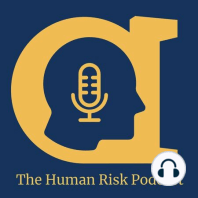37 min listen
Solène Clément on Pragmatic Compliance
ratings:
Length:
55 minutes
Released:
Jan 28, 2024
Format:
Podcast episode
Description
What happens when companies outside financial services are required to comply with regulations such as AML (Anti-Money Laundering)? As we all know from our personal experiences of banks that want to verify who we are and where money is coming from or going to, the rules are complex. That’s challenging enough if you’re a bank. But if you’re an art dealer, a real estate agent or someone else working in the field of high-value goods, that’s even harder. Particularly if the rules aren’t something you’re familiar with. My guest on this episode, Solène Clément, is a lawyer who supports clients in this space in meeting their regulatory obligations in a pragmatic way. That doesn’t mean not complying with the rules or bending them. It means bringing the gap between regulatory objectives and the practicalities of delivering them on the ground. She’s also the President of the Anti-Money Laundering Observatory, a body that seeks to get regulators to understand the practical challenges of their regulations and those subject to them to improve their knowledge and understanding of them. To find out more about Solène and her work, visit: https://clementavocats.com/ For more on the Anti-Money Laundering Observatory (OLAB): https://clementavocats.com/index.php/accueil/olab/
Released:
Jan 28, 2024
Format:
Podcast episode
Titles in the series (100)
Tom & Christian's 2nd Human Risk Talk: In this episode, I'm joined again by co-host Tom Hardin. Together we explore Human Risk related stories we've come across that we think are worth diving into in more detail. You can hear Tom's story in Episode 2. In this episode, we look at three... by The Human Risk Podcast
